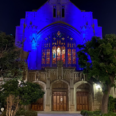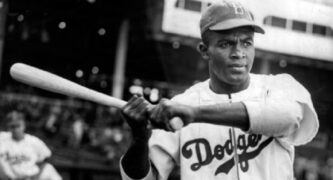
Los Angeles County Supervisor Kathryn Barger will recognize members of Jackie Robinson’s family, the Friends of Jackie Robinson Park, Miss Juneteenth, and Little Miss Juneteenth during the Board of Supervisors meeting on Tuesday, June 18, in celebration of Juneteenth.
The recognition will take place at the Kenneth Hahn Hall of Administration at 500 West Temple Street in Los Angeles.
During the presentation, members from both Jackie Robinson’s family and the Friends of Jackie Robinson Park are scheduled to speak and reflect on the significance of Juneteenth.
Pasadena Jackie Robinson was a pioneering figure in American history who broke the color barrier in Major League Baseball when he joined the Brooklyn Dodgers in 1947, becoming the first Black player in the modern era. Robinson’s connection to Pasadena was deeply personal — he was raised in the city from infancy after his family moved there from Georgia in 1920.
Despite facing racism and segregation in Pasadena during his youth, Robinson excelled as a multi-sport athlete at local schools before attending UCLA.
On Saturday, June 15, Supervisor Barger joined the Friends of Jackie Robinson Park for their long-standing Juneteenth celebration in Sun Village.
Jackie Robinson Park in Sun Village, dedicated in 1965, was the first park in the United States named after the legendary Dodgers player.
Sun Village, a community in the Antelope Valley, has historic roots as the first place where African Americans could rent and buy property. Residents raised funds to purchase land for the park and reached an agreement with LA County to sell the land in exchange for the construction of the 9-acre park.
The park serves as an important legacy of the community’s efforts to build and thrive in the late 1950s and early 1960s. Jackie Robinson Park was completed in 1965, and opened in a public celebration, with Robinson, Dorn, and Sun Village’s community leaders in attendance. The park features a baseball field, basketball court, children’s play area, and an astronaut-themed jungle gym.
A 1966 schedule published in the Antelope Valley Press showed the park in constant use, with activities ranging from volleyball and softball to sewing classes and children’s story hours. The park continues to serve as a vital community resource and a testament to Jackie Robinson’s enduring legacy.














 22 comments
22 comments


